Battle for Swiss army set for third ballot
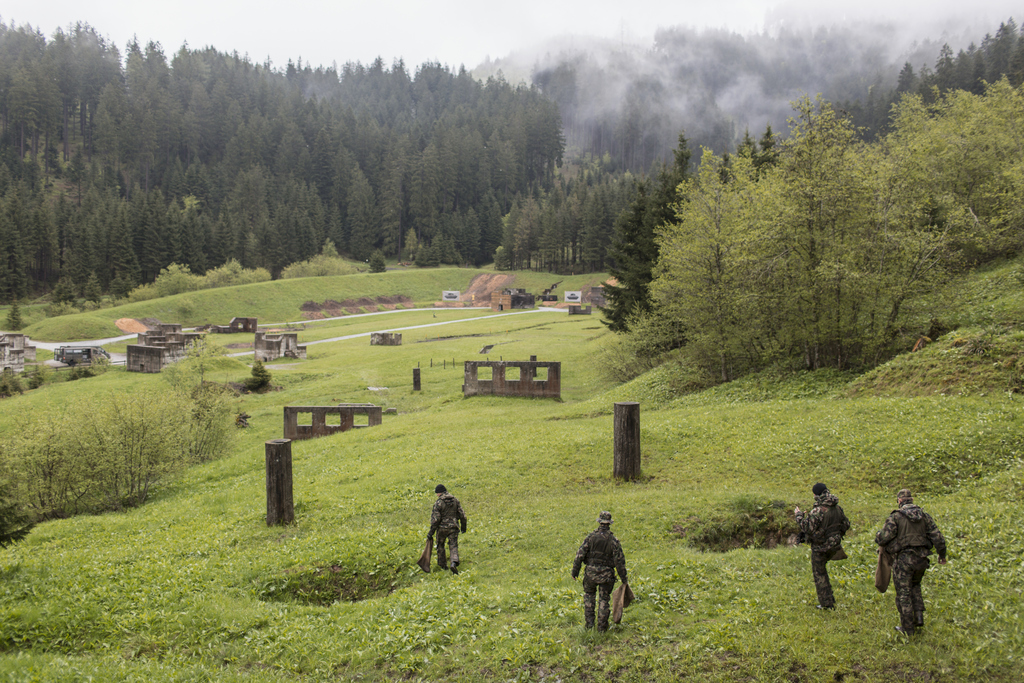
Pacifists are targeting conscription in Switzerland in an effort to demilitarise the world; conservatives praise the militia army as guaranteeing the security of the country. Voters will decide on the issue in a nationwide ballot on September 22.
Jakob Büchler, who heads a broad-based political committee which is against the initiative, is convinced of the true intentions of the pacifist Group for a Switzerland Without an Army.
“Their initiative is an attack on the successful Swiss model, an attack against our army. The group not only want to abolish conscription, they want to eliminate the armed forces altogether,” says the centre-right Christian Democrat, who serves on a parliamentary security committee.
The oppositve view is presented by Nikolai Prawdzic, spokesman for the pacifist campaigners, who believes it no longer makes sense to maintain a system of compulsory military service.
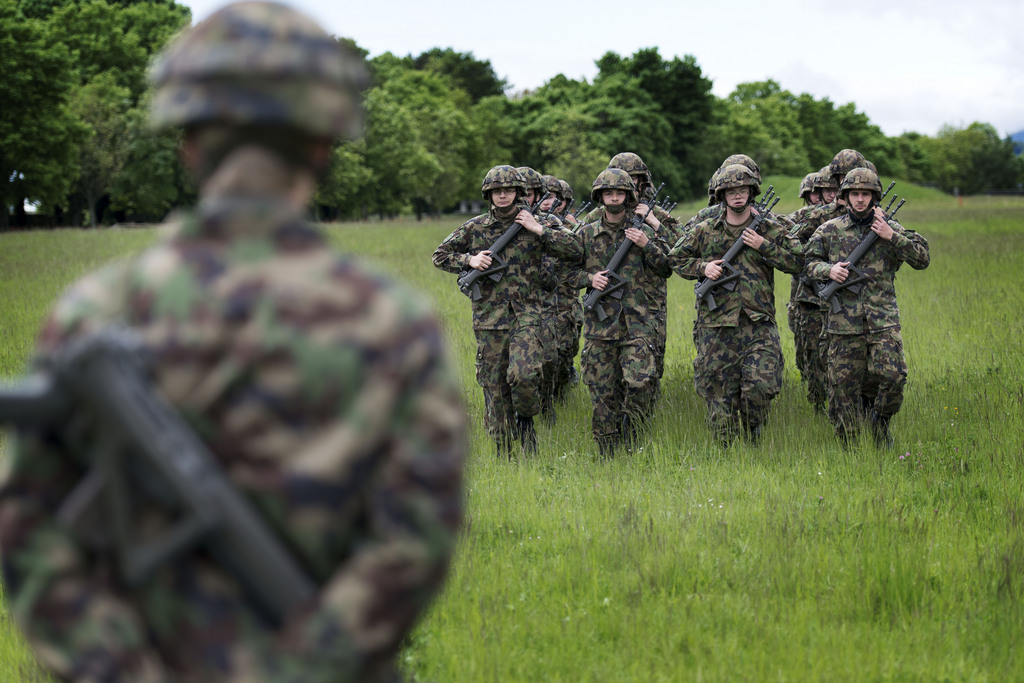
More
Visiting the troops
“It’s an antiquated concept. Looking at other countries, conscription has become untenable, even for strategic reasons,” he told swissinfo.ch.
“It would be a big success if tens of thousands of young people were no longer forced to learn the art of war,” he adds. “It’s an important step towards demilitarising the army.”
Several counties in Europe, even under conservative governments, have scrapped conscription since the fall of the Berlin Wall more than 20 years ago. They include three of the four states neighbouring Switzerland: Germany, France and Italy.
Voters in Austria, however, came out in favour of upholding conscription last January.
Twenty of the 28 member states of the NATO defence alliance have introduced or are planning to introduce a voluntary army system. Switzerland is not a member of NATO.
Leftwing backing
With its founding in 1982, the Group for a Switzerland Without an Army launched a first initiative to scrap Switzerland’s armed forces. More than one third of voters approved the proposal at the ballot box in 1989, causing an upset for the political establishment.
Support for a second similar initiative by the same group – to replace the militia army by a peace corps – dropped to just 22 per cent in a nationwide vote in 2001.
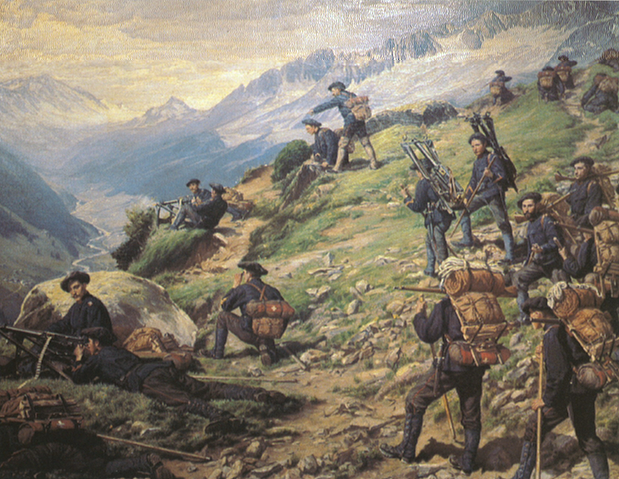
More
Timeline: Swiss security policy and conscription
Leftwing political parties are backing the latest attempt by the pacifist campaigners. The Social Democrats and the Greens have explicitly established the abolition of the Swiss army as a political goal in their party programmes.
Parties at the centre and the right of the political spectrum say this confirms that the real aim of the initiative is the abolition of the militia army.
Professional army
Opponents of the initiative argue that abolishing conscription is tantamount to calling for the creation of a professional army.
“The army would have to undergo a major reorganisation,” says Büchler. “Volunteers would have to be offered special incentives to serve.”
He points out the example of Germany, where it is apparently difficult to find enough recruits. “And those that do come are often not suitable.”
The disadvantages of a professional army clearly outweigh the current militia army system, Büchler believes.
The conscript system is enshrined in the Swiss constitution of 1848.
Military service is mandatory for all able-bodied male Swiss citizens from the age of 18 to 29 for soldiers and 49 for officers.
Women may volunteer for service.
In 1996 a civilian service was created as an alternative option to compulsory military service. Conscientious objectors can apply. Their service lasts up to 390 days – 50% longer than the total military service period.
Men deemed unfit for service are exempted, but they pay a three per cent additional annual income tax.
Tradition
Dismissing Büchler’s allegations, Prawdzic argues: “As long as the army can credibly show that there is a threat to the country, there will always be enough people willing to serve, and not just for financial reasons.”
He says the opponents of the initiative fear the end might have come for a long Swiss tradition and the perception of men ready to fight for their country.
“But tradition or a belief that men benefit from military service is simply not a good enough ground to argue that it is a strategic necessity to hold on to conscription.”
This argument in turn is bluntly rejected by Büchler.
“The militia army is a school for life. Our militia army is made up of citizen soldiers. They bring their professional expertise to the army,” he says.
The system is an invaluable opportunity which has stood the test of time, according to Büchler.
Besides, there would not be enough to do if an entire professional army was on duty in times of peace. Under the current militia system at most 5,000 members are serving in the army at the same time.
There are currently about 155,000 personnel on active duty and about 32,000 in the reserves.
Nearly 24,000 young male conscripts and a handful of women entered the army in 2012.
Overall, there are about 1,000 women serving in the armed forces on a voluntary basis.
2,650 personnel are employed by the armed forces as professionals.
Three separate issues will be put to a nationwide vote on September 22:
An initiative calling for an end to mandatory conscription, and two separate decisions by parliament to ease restrictions on service station shops and to introduce compulsory vaccination campaigns as part of an amended law on epidemics.
As a rule, votes take place four times a year at a nationwide level.
Votes and elections take place in many of the country’s 26 cantons and at a local level on September 22.
(Adapted from German by Urs Geiser)

In compliance with the JTI standards
More: SWI swissinfo.ch certified by the Journalism Trust Initiative
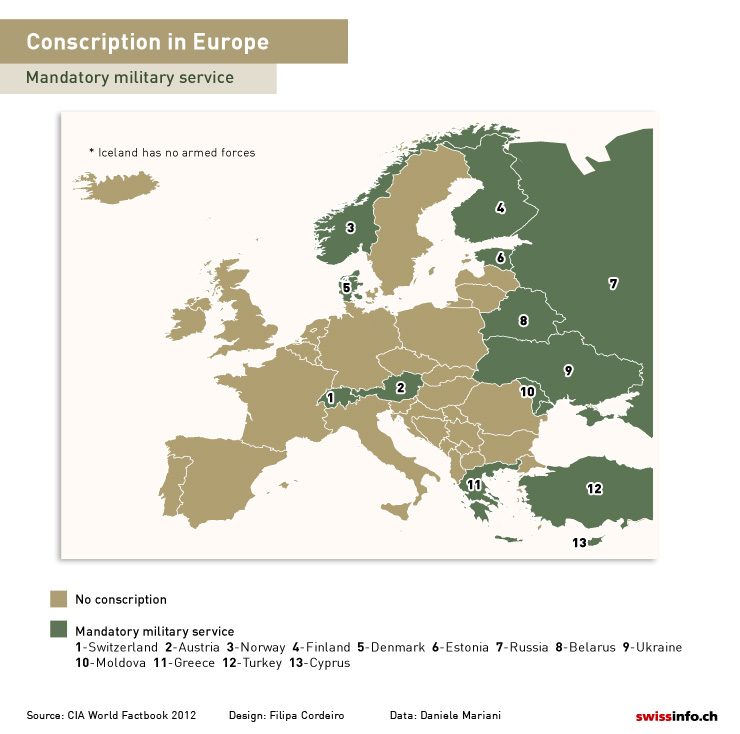
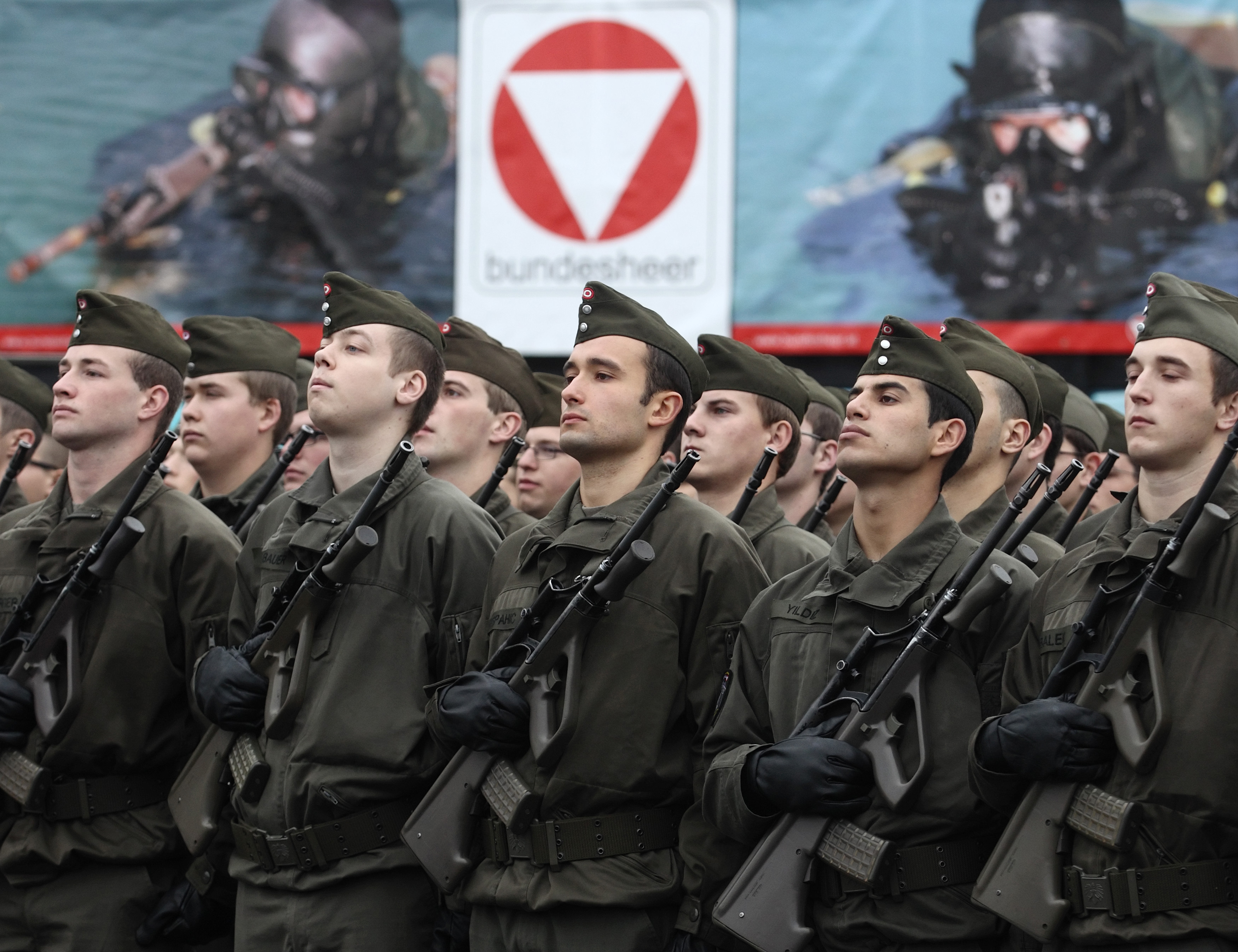
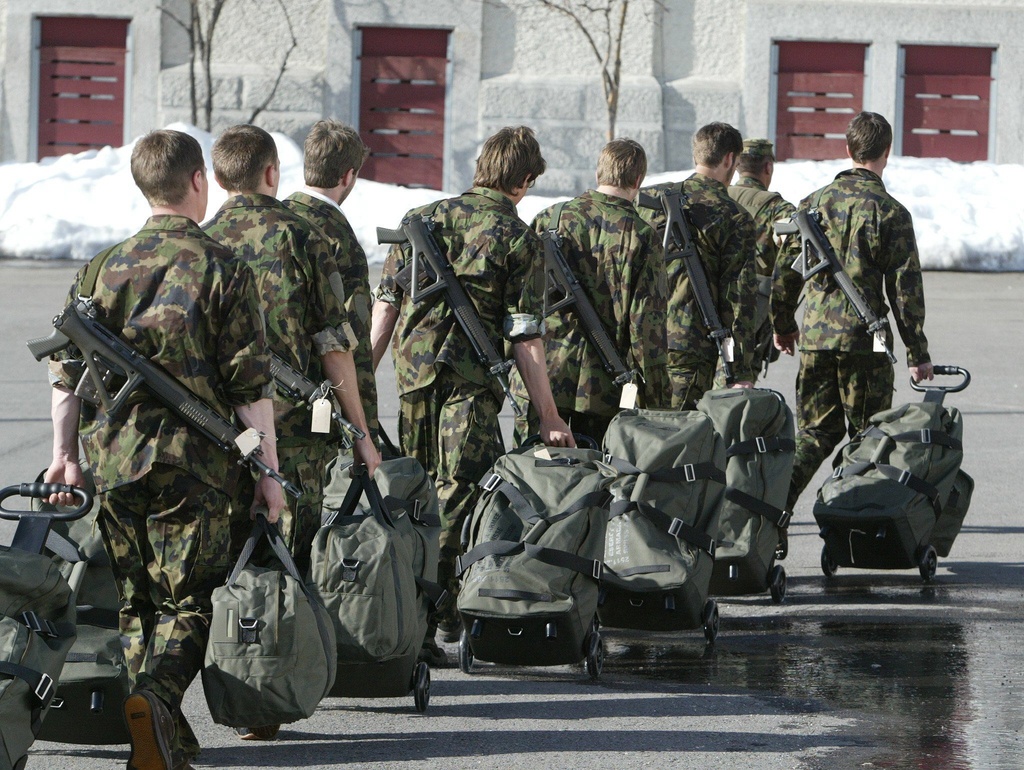

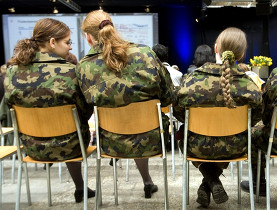


You can find an overview of ongoing debates with our journalists here. Please join us!
If you want to start a conversation about a topic raised in this article or want to report factual errors, email us at english@swissinfo.ch.